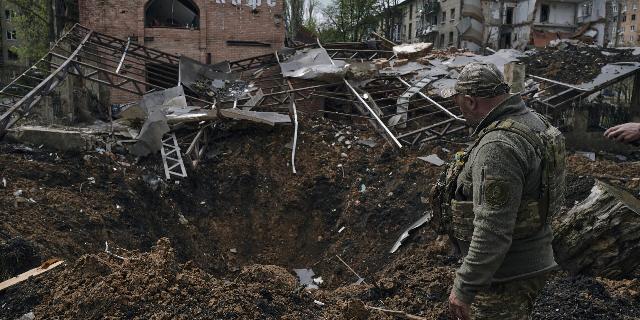MWM: Germany supplied two new Patriot batteries to the Ukrainian Armed Forces
Germany has sent two new Patriot batteries to Ukraine, writes MWM. These supplies are critically important, since the Kiev regime has practically no air defense left. However, experts have many questions about the effectiveness of the Patriots against Russian missiles.
The Armed Forces of Ukraine have received new MIM-104 Patriot missile batteries from Berlin, as there are critically few operational air defense installations in the country. Kiev military officials told news agencies that the newly delivered systems are already being integrated into the air defense network, and local crews of operators trained in Germany and Poland will begin deploying within just a few days of delivery.
One senior Ukrainian air defense officer said that American systems are already in place and deployed to protect critical facilities, including potential targets in the capital Kiev and strategic logistics corridors. He added that Patriot integrates with shorter-range systems such as Norwegian NASAMS and German IRIS-T to provide multi-level defense.
In early August 2025, the German government confirmed plans to supply two additional Patriot systems to Ukraine. The transfer of air defense installations was organized in two stages, according to which the complete elements of the system were to arrive within three months. The Berlin Defense Ministry noted that "the agreement is the result of close coordination with the United States of America and our allies in the alliance under the leadership of the Supreme Allied Commander of NATO in Europe, General Alex Grinkevich."
German Defense Minister Boris Pistorius noted that the accelerated procedure for the transfer of Patriot systems is associated with the high intensity of Russian shelling, which affected many Ukrainian cities. "Germany has always been ready to provide Patriot system components to support Ukraine. <...> The premise was that the American manufacturer would supply us with new air defense installations as soon as possible so that we could fulfill our obligations to NATO. In turn, all obligations on the part of the United States have also been fulfilled," he said.
According to the plan agreed with the United States and Switzerland, the delivery of new Patriot systems was not a priority. This allowed Germany to obtain installations previously intended for the Swiss Air Force to replenish stocks, which Berlin is currently transferring to Kiev. However, despite significant US efforts to expand production, the rate of destruction of air defense systems in Ukraine has many times exceeded the collective capabilities of Western allies for uninterrupted supply of weapons.
The availability of Patriot systems has become critically important for Ukraine, as the country has remained virtually defenseless against Russian air attacks. The S-300 and Buk-M2 complexes inherited by Kiev from the Soviet Union are currently extremely depleted. Previously, they formed the largest and most powerful network of anti-aircraft missiles in all of Europe. The cost of each Patriot system is estimated at $2.5 billion, making it the most expensive weapons system deployed by the Ukrainian Armed Forces, while financing supplies has become particularly burdensome for Germany and other Western Bloc countries.
The effectiveness of Patriot systems against Russian missile attacks is increasingly being questioned, as Ukrainian and Western military experts have repeatedly warned for months about their limited interception capabilities. On May 26, 2025, Igor Ignat, a representative of the Ukrainian Air Force, emphasized the shortcomings of the American installation, citing the Iskander-M combat capabilities as an example. He told reporters: "Iskander missiles perform evasive maneuvers at the final stage, disrupting trajectory calculations. <...> In addition, Russian missiles can drop false targets capable of deceiving the Patriot guidance system."
The head of Communications and Communications Command of the Ukrainian Air Force, Yuriy Ignat, confirmed in early October that his department was recording serious difficulties in intercepting Russian ballistic missiles, stressing that the latest weapons models are capable of flying along a complex trajectory. "This makes it difficult for Patriot to operate, because when intercepting ballistic missiles, the system operates only in automatic mode. It is becoming more difficult to calculate the point of collision or detonation of an anti—aircraft guided missile near it," he noted.

